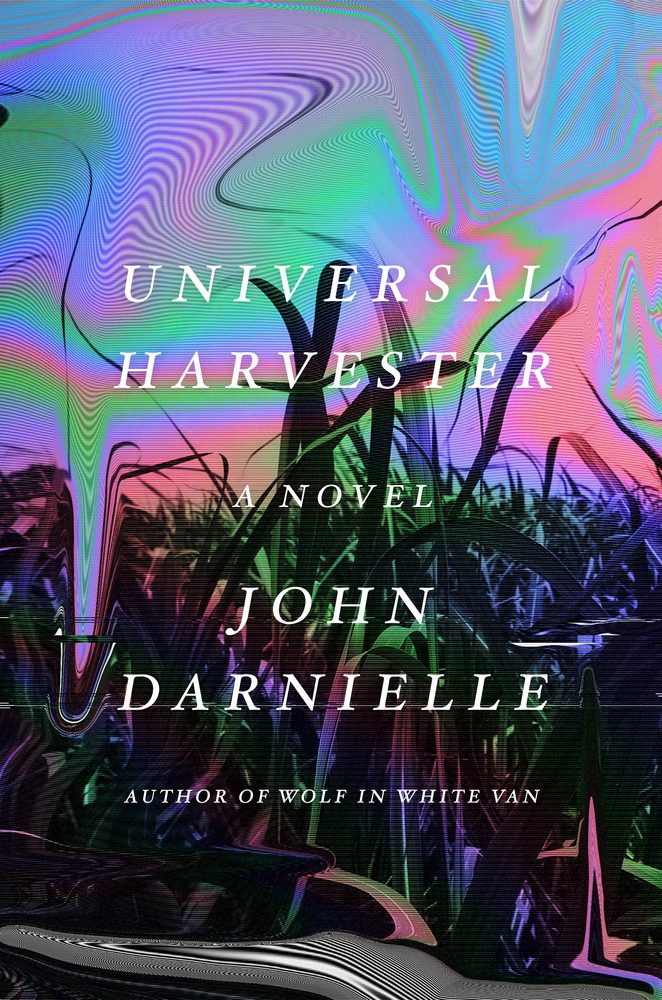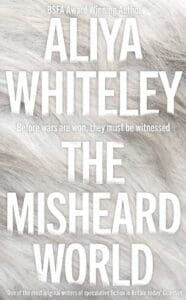
Synopsis:
It’s the late ’90s, and you can find Jeremy Heldt at the Video Hut in Nevada, Iowa―a small town in the center of the state. The job is good enough for Jeremy, quiet and predictable, and it gets him out of the house, where he lives with his dad and where they both try to avoid missing Mom, who died six years ago in a carwreck. But when a local school teacher comes in to return her copy of Targets―an old movie, starring Boris Karloff―the transaction jolts Jeremy out of his routine. “There’s something on it,” she says as she leaves the store, though she doesn’t elaborate. Two days later, another customer returns another tape, and registers the same odd complaint: “There’s another movie on this tape.”
In Universal Harvester, the once-placid Iowa fields and farmhouses become sinister, imbued with loss and instability and foreboding. As Jeremy and those around him are absorbed into tapes, they become part of another story―one that unfolds years into the past and years into the future, part of an impossible search for something someone once lost that they would do anything to regain.
Review:
“Universal Harvester,” by John Darnielle is a book that absolutely matches its cover… strange. It’s vague, it’s random… hell it’s even incoherent at some points… but it’s also beautiful, gripping and one of the most unique reading experiences I’ve come across. It will mess you up- in a good way. If you’re looking for a fever dream, you’ll find it here.
I will now attempt to summarise a novel in which I have little-to-no idea what on earth happened. This ought to be an ordeal for the both of us.
We (kind of) follow Jeremy Heldt, a clerk at a video-rental store. With a dark past, a nagging father, and no real sense of direction- his life in middle America in the 90s is pretty mundane. That is of course until everything changes. When multiple customers complain that their movies have been taped over, Jeremy is intrigued. When he sits down to watch “She’s all that,” what he discovers doesn’t even mildly resemble the teen rom-com on the cover. Someone has been splicing home-video footage into these films, home videos that are confusing, dark and sometimes violent. There’s nothing he can do right? He shouldn’t get involved? He can’t even discern where the footage was shot? But his boss- Sarah Jane- can, and before you can say “Wait what-” everything changes again. S.J is inexplicably drawn to the current inhabitant of the creepy farmhouse the videos are shot in, Lisa Sample- and before anyone knows it, is taking weeks off of work, having practically moved in. Jeremy feels confused by this… and slightly betrayed. As he discovers more and more spliced tapes, should he back off? Or can he get to the bottom of this by himself?
You’d think my mediocre summary, and the synopsis at least hint at where this novel might take you. They do not. It’s absolutely gripping, whilst bordering on unreadable. It’s disjointed but engrossing. I feel the main point of my review, and one of the only things I can say with certainty is this. If you like your endings to be clear, wrapped up with a bow, and presented to you on a platter- this is not the book for you. If you like genre-bending literary fiction, in which you feel like you’re going slightly insane -but having a good time… you will devour this.
This book (as if it wasn’t bizarre enough already) is very interesting in terms of characters. Initially you feel like Jeremy is our protagonist. Not really. Darnielle frequently hits rewind, then fast-forward, and possibly changes the tape completely at one point. Jeremy is one strand in a very sophisticated array of characters, placed on a very sophisticated timeline. His story is one in a revolving door of perspectives and plot lines. These plot lines are tied together by an unnamed narrator, who (I would speculate) is living in the present tense. It’s high brow. It’s confusing. It’s undeniably clever.
I suppose I should cut the waffle and get down to the core of the novel. As with the rest of the book, what Darnielle is trying to convey is open to interpretation, however I think this is predominantly about grief. Whilst there’s also commentary on religion and class and the passing of time, the entire novel revolves around grief. Jeremy lost his mother and Lisa lost a relative back in the 60s. Both characters are shaped and defined by this uncertainty.
I’m aware this review is not particularly informative or even coherent- but you can consider it a warm-up for the real thing. It’s a book you have to read to understand… and even then not really.
In conclusion, “Universal Harvester,” is an enigma of a novel that defies genre. It’s a challenging journey through a maze of perspectives and timelines that ends with the reader still being lost. However, at the same time it’s an undeniably fun read that offers a truly unique experience. So, go on- I dare you… embrace the uncertainty, tackle the unconventional and revel in the confusion of “Universal Harvester.”








Leave a Reply